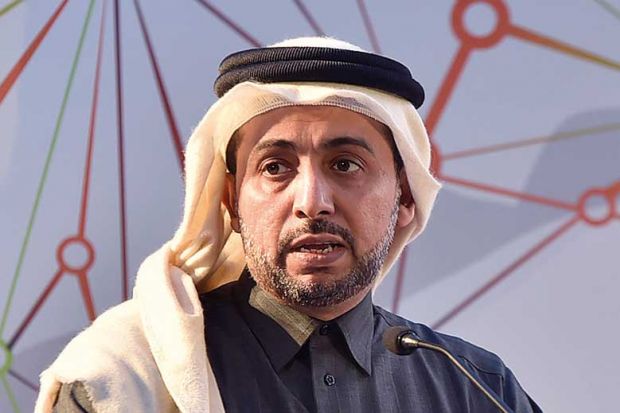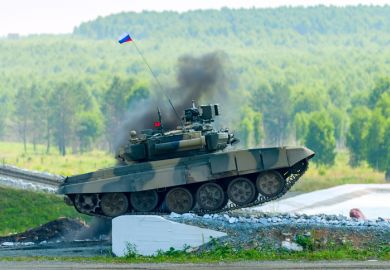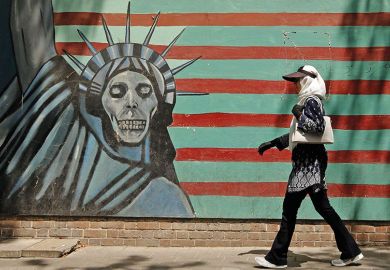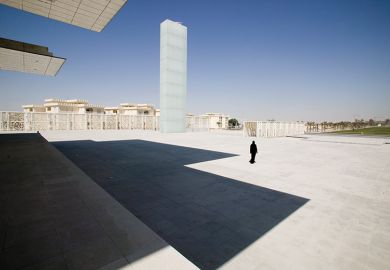University leaders have spoken of their hope that academics can serve as a “bridge” between nations in an increasingly fractious world.
Participants in a panel at Times Higher Education’s Emerging Economies Summit on institutional resilience in the face of adversity, drawn from territories including Palestine, Kurdistan, Russia and Colombia, emphasised the importance of “academic diplomacy” as a means of maintaining scientific and cultural ties during times of conflict.
Konstantin Miniar-Beloruchev, vice-rector of Lomonosov Moscow State University, told the event at Qatar University that despite “tensions between the Russian Federation and certain Western countries, and even sanctions, there had been barely any influence on the sphere of higher education, especially international collaboration”.
“Academics become a bridge between nations and countries…there are certain issues that cannot be discussed between politicians or business corporations, but those issues can be discussed in the academic arena,” he said. He pointed out that this had also been the case during the Cold War.
Another example was offered by Hassan Al-Derham, president of Qatar University, who said that, despite the ongoing blockade of Qatar by neighbouring Arab states, his institution had tried to assure students from these countries that they were welcome to stay. This step was taken even though Qatari students were being thrown out of the home countries of those same international students, Dr Al-Derham said.
“I think it has got us more respect. Those presidents of universities [in countries imposing sanctions on Qatar] were forced to do this; it was the political situation,” he said.
Dr Al-Derham added that Qatari academics’ participation in international conferences had allowed them to explain what was happening in Qatar and “to defend against the allegations [being made] against the country” at an international level.
Dlawer Ala’Aldeen, founding president of the Middle East Research Institute and former minister of higher education and scientific research for the Kurdistan regional government in Iraq, agreed that international connectivity was one of the most important ways universities could support their nations in the face of adversity.
As Iraq rebuilds its higher education sector after the turmoil of war, Kurdistan has introduced a system under which all Kurdish PhD students spend 18 months abroad. They return home with international expertise and connections that give a vital boost to a nation deprived of talent, he said.
Professor Ala’Aldeen told THE that he believed that all countries in the Middle East should follow suit because it would not only improve their educational standards but also prevent a two-tiered academic system that is split between those with international experience and those without.
Also speaking at the event was Mirvat Bulbul, vice-president for administrative and financial affairs at Birzeit University in the West Bank, who discussed how tensions with Israel hampered attempts to build international collaborations.
“In a place like Palestine, universities are the only safe havens of democracy and human dignity,” she said. “Internationalisation and mobility is denied in the West Bank…the border is controlled by Israel, so no internationals [faculty and students] can come without applying to Israel…we have had to adapt our teaching and learning to the three months they are sometimes allowed,” she said, adding: “Government is completely absent here…so universities have to work out our problems ourselves.”
anna.mckie@timeshighereducation.com
Watch video of the "Presidents' forum on resilience"
Register to continue
Why register?
- Registration is free and only takes a moment
- Once registered, you can read 3 articles a month
- Sign up for our newsletter
Subscribe
Or subscribe for unlimited access to:
- Unlimited access to news, views, insights & reviews
- Digital editions
- Digital access to THE’s university and college rankings analysis
Already registered or a current subscriber?








